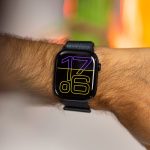The opinion (Missouri v. Biden) by Judge Terry Doughty (W.D. La.) is here, and the injunction is here. The opinion is 45,000 words long, and I doubt I’ll have a chance to fully analyze it for a while (I’m largely tied up for the next couple of weeks); but in the meantime, here’s the opening:
The explosion of social-media platforms has resulted in unique free speech issues— this is especially true in light of the COVID-19 pandemic. If the allegations made by Plaintiffs are true, the present case arguably involves the most massive attack against free speech in United States’ history. In their attempts to suppress alleged disinformation, the Federal Government, and particularly the Defendants named here, are alleged to have blatantly ignored the First Amendment’s right to free speech.
Although the censorship alleged in this case almost exclusively targeted conservative speech, the issues raised herein go beyond party lines. The right to free speech is not a member of any political party and does not hold any political ideology. It is the purpose of the Free Speech Clause of the First Amendment to preserve an uninhibited marketplace of ideas in which truth will ultimately prevail, rather than to countenance monopolization of the market, whether it be by government itself or private licensee. Red Lion Broadcasting Co., v. F.C.C. (1969).
Plaintiffs allege that Defendants, through public pressure campaigns, private meetings, and other forms of direct communication, regarding what Defendants described as “disinformation,” “misinformation,” and “malinformation,” have colluded with and/or coerced social-media platforms to suppress disfavored speakers, viewpoints, and content on social-media platforms. Plaintiffs also allege that the suppression constitutes government action, and that it is a violation of Plaintiffs’ freedom of speech under the First Amendment ….
The principal function of free speech under the United States’ system of government is to invite dispute; it may indeed best serve its high purpose when it induces a condition of unrest, creates dissatisfaction with conditions as they are, or even stirs people to anger. Texas v. Johnson, (1989). Freedom of speech and press is the indispensable condition of nearly every other form of freedom. Curtis Pub. Co. v. Butts (1967)….
The question does not concern whether speech is conservative, moderate, liberal, progressive, or somewhere in between. What matters is that Americans, despite their views, will not be censored or suppressed by the Government. Other than well-known exceptions to the Free Speech Clause, all political views and content are protected free speech…..
In this case, Plaintiffs allege that Defendants suppressed conservative-leaning free speech, such as: (1) suppressing the Hunter Biden laptop story prior to the 2020 Presidential election; (2) suppressing speech about the lab-leak theory of COVID-19’s origin; (3) suppressing speech about the efficiency of masks and COVID-19 lockdowns; (4) suppressing speech about the efficiency of COVID-19 vaccines; (5) suppressing speech about election integrity in the 2020 presidential election; (6) suppressing speech about the security of voting by mail; (7) suppressing parody content about Defendants; (8) suppressing negative posts about the economy; and (9) suppressing negative posts about President Biden.
Plaintiffs Bhattacharya and Kulldorff are infectious disease epidemiologists and co-authors of The Great Barrington Declaration (“GBD”). The GBD was published on October 4, 2020. The GBD criticized lockdown policies and expressed concern about the damaging physical and mental health impacts of lockdowns. They allege that shortly after being published, the GBD was censored on social media by Google, Facebook, Twitter, and others. Bhattacharya and Kulldorff further allege on October 8, 2020 (four days after publishing the GBD), Dr. Frances Collins, Dr. Fauci, and Cliff Lane proposed together a “take down” of the GBD and followed up with an organized campaign to discredit it.
Dr. Kulldorff additionally alleges he was censored by Twitter on several occasions because of his tweets with content such as “thinking everyone must be vaccinated is scientifically flawed,” that masks would not protect people from COVID-19, and other “anti-mask” tweets. Dr. Kulldorff (and Dr. Bhattacharya) further alleges that YouTube removed a March 18, 2021 roundtable discussion in Florida where he and others questioned the appropriateness of requiring young children to wear facemasks. Dr. Kulldorff also alleges that LinkedIn censored him when he reposted a post of a colleague from Iceland on vaccines, for stating that vaccine mandates were dangerous, for posting that natural immunity is stronger than vaccine immunity, and for posting that health care facilities should hire, not fire, nurses….
In addition to the allegations of the Individual Plaintiffs, the States of Missouri and Louisiana allege extensive censorship by Defendants. The States allege that they have a sovereign and proprietary interest in receiving the free flow of information in public discourse on social- media platforms and in using social-media to inform their citizens of public policy decisions. The States also claim that they have a sovereign interest in protecting their own constitutions, ensuring their citizen’s fundamental rights are not subverted by the federal government, and that they have a quasi-sovereign interest in protecting the free-speech rights of their citizens. The States allege that the Defendants have caused harm to the states of Missouri and Louisiana by suppressing and/or censoring the free speech of Missouri, Louisiana, and their citizens….
Plaintiffs assert that since 2018, federal officials, including Defendants, have made public statements and demands to social-media platforms in an effort to induce them to censor disfavored speech and speakers. Beyond that, Plaintiffs argue that Defendants have threatened adverse consequences to social-media companies, such as reform of Section 230 immunity under the Communications Decency Act, antitrust scrutiny/enforcement, increased regulations, and other measures, if those companies refuse to increase censorship. Section 230 of the Communications Decency Act shields social-media companies from liability for actions taken on their websites, and Plaintiffs argue that the threat of repealing Section 230 motivates the social-media companies to comply with Defendants’ censorship requests. Plaintiffs also note that Mark Zuckerberg (“Zuckerberg”), the owner of Facebook, has publicly stated that the threat of antitrust enforcement is “an existential threat” to his platform….
Here’s the injunction:
[The Department of Health & Human Services, the Centers for Disease Control and Prevention, the Justice Department, the FBI, the Census Bureau, and various other federal departments and officials] ARE HEREBY ENJOINED AND RESTRAINED from taking the following actions as to social-media companies {include[ing] Facebook/Meta, Twitter, YouTube/Google, WhatsApp, Instagram, WeChat, TikTok, Sina Weibo, QQ, Telegram, Snapchat, Kuaishou, Qzone, Pinterest, Reddit, LinkedIn, Quora, Discord, Twitch, Tumblr, Mastodon, and like companies}:
meeting with social-media companies for the purpose of urging, encouraging, pressuring, or inducing in any manner the removal, deletion, suppression, or reduction of content containing protected free speech posted on social-media platforms;
specifically flagging content or posts on social-media platforms and/or forwarding such to social-media companies urging, encouraging, pressuring, or inducing in any manner for removal, deletion, suppression, or reduction of content containing protected free speech;
urging, encouraging, pressuring, or inducing in any manner social-media companies to change their guidelines for removing, deleting, suppressing, or reducing content containing protected free speech;
emailing, calling, sending letters, texting, or engaging in any communication of any kind with social-media companies urging, encouraging, pressuring, or inducing in any manner for removal, deletion, suppression, or reduction of content containing protected free speech;
collaborating, coordinating, partnering, switchboarding, and/or jointly working with the Election Integrity Partnership, the Virality Project, the Stanford Internet Observatory, or any like project or group for the purpose of urging, encouraging, pressuring, or inducing in any manner removal, deletion, suppression, or reduction of content posted with social-media companies containing protected free speech;
threatening, pressuring, or coercing social-media companies in any manner to remove, delete, suppress, or reduce posted content of postings containing protected free speech;
taking any action such as urging, encouraging, pressuring, or inducing in any manner social-media companies to remove, delete, suppress, or reduce posted content protected by the Free Speech Clause …;
following up with social-media companies to determine whether the social-media companies removed, deleted, suppressed, or reduced previous social-media postings containing protected free speech;
requesting content reports from social-media companies detailing actions taken to remove, delete, suppress, or reduce content containing protected free speech; and
notifying social-media companies to Be on The Lookout (“BOLO”) for postings containing protected free speech.
This Preliminary Injunction precludes said named Defendants, their agents, officers, employees, contractors, and all acting in concert with them from the aforementioned conduct. This Preliminary Injunction also precludes said named Defendants, their agents, officers, employees, and contractors from acting in concert with others who are engaged in said conduct.
IT IS FURTHER ORDERED that the following actions are NOT prohibited by this Preliminary Injunction:
informing social-media companies of postings involving criminal activity or criminal conspiracies;
contacting and/or notifying social-media companies of national security threats, extortion, or other threats posted on its platform;
contacting and/or notifying social-media companies about criminal efforts to suppress voting, to provide illegal campaign contributions, of cyber-attacks against election infrastructure, or foreign attempts to influence elections;
informing social-media companies of threats that threaten the public safety or security of the United States;
exercising permissible public government speech promoting government policies or views on matters of public concern;
informing social-media companies of postings intending to mislead voters about voting requirements and procedures;
informing or communicating with social-media companies in an effort to detect, prevent, or mitigate malicious cyber activity;
communicating with social-media companies about deleting, removing, suppressing, or reducing posts on social-media platforms that are not protected free speech ….
IT IS FURTHER ORDERD that the Motion for Preliminary Injunction … is DENIED as to the following Defendants: U.S. Food and Drug Administration; U. S. Department of Treasury; U.S. Election Assistance Commission; [and] U. S. Department of Commerce ….
Thanks to Louis Bonham for the pointer.
The post July 4 Injunction Bars Various Federal Departments from Encouraging Social Media Platforms to Delete Content appeared first on Reason.com.






